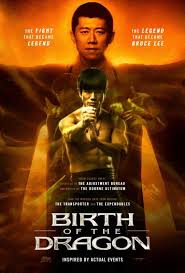 Much has been already been written about the generation which follows the millennials, Generation Z. Just google Gen Z and see what happens! The thing that stands out most to me about Gen Z is their shrinking attention span. Though some would label the phenomena a myth, I think most concur that Generation Z’s attention span of 8 seconds is less than that of a goldfish, whose attention span is 9 seconds.
Much has been already been written about the generation which follows the millennials, Generation Z. Just google Gen Z and see what happens! The thing that stands out most to me about Gen Z is their shrinking attention span. Though some would label the phenomena a myth, I think most concur that Generation Z’s attention span of 8 seconds is less than that of a goldfish, whose attention span is 9 seconds.
Maybe you are thinking that someone has too much time on their hand if they are staring obsessively at a goldfish to determine its attention span, but I can assure you the business world would disagree. Marketers know how much money Gen Z is worth and how much Gen Z is spending and are tracking their every wireless move on the internet and abroad.
Just like the internet must have a captivating picture, keyword, or video to capture Gen Z’s interest, so too must next generation leaders. If you do not hook Gen Z’s attention in the first seven minutes of a talk, you can forget about Gen Z listening at all.
Darla Rothman notes learning needs of Gen Z and how leaders can engage Gen Z:
• Give fast delivery of content, data, and graphics.
• Provide kinesthetic, experiential, problem-solving, hands-on activities.
• Everything is about speed, convenience, and finding short cuts to obtaining information.
• Integrate interactive multimedia.
• Allow them to Multi-task.
• Give instant feedback, clear goals, challenges, rewards, and positive reinforcement, as found in video games.
• Deliver learning in small “bites” or little chunks.
• Have a trial and error approach in learning.
• Stress problem solving assignments and exercises instead of memorizing.
• Get students working in teams/small groups.
• Ensure engagement in creativity and collaboration, whether it is spontaneous or structured.
• Be flexible to provide learning in the way that works best for them.
Planet Classroom promotes the idea(s) that Gen Z is
• Used to multitasking but are not necessarily very social with in-person groups
• Connects more easily with teachers and professors as facilitators or guides.
• Are highly capable of self-directed learning and critical thinking but only when they feel what they are learning is important or valuable.
• In need of active learning and a student-centered learning environment.
• Wanting leaders to do tasks right along with them and show them that it is OK to make mistakes.
Tim Elmore provides a snapshot of the power social media plays in today’s world:
Social media now plays a central role in:
• How students derive their personal identity
• How students determine their value and popularity
• How students bully, criticize or affirm each other
• How students discover news stories and causes to engage in
• How students communicate with both friends and strangers
• How students find and connect with partners, from hook up to break up
So, Elmore gives tips to next gen leaders on how to utilize social media platforms:
1. When you want to broadcast something, Twitter or YouTube are valuable resources for you to utilize.
2. If you have a more personal message for a handful of select students you know, Snapchat could be helpful.
3. If you want to teach something to students that will open up a discussion later, why not leverage a video on YouTube?
4. Before a performance (a game, competition or show), why not post an inspirational meme on Instagram?
5. If you have an article you’d like students to read, Facebook may be the best platform to use.
Just who is Gen Z? Rothman says,
• They have never known a world without Internet, cell phones, or iPods.
• They are tech savvy and in constant contact with people 24/7 using Facebook or Twitter.
• They want technology that is easy to use and will solve their problems, help coordinate their activities, or provide them with relevant people or information.
• Their brains are affected by Internet use. They find answers to questions in Google and YouTube, but they lack the critical thinking skills to evaluate sources.
• They have low/no tolerance for being without digital resources.
• They have never had to use a library card catalog or rummage through shelves to find a specific book.
• They don’t use a wristwatches or alarm clocks because they use their smartphones for that.
• Instead of reading an article, they want to watch a video (YouTube) that summarizes it.
• They may never send an email: [that is “so yesterday”]. Why email when you can text, instant message, tweet or FaceBook?
• They use a texting “slanguage.” Examples: Cray Cray (when life is too crazy for one word), Probs (other generations say probably), Totes (used to show agreement—totally), XOXOX (used to end any text. For Baby Boomers it means sincerely yours), V (very) and I (because I am the center of everything).
Even Universities are responding to the needs of Gen Z. The University of Hawaii says its faculty needs to:
1. Go with the flow and go virtual
2. Tap into its ‘rock star’ qualities
3. Surrender the soapbox
4. Meddle in the middle
5. Revalue the notion of ‘play’
You may not agree with all of the above assessments, but realize Gen Z is different than its predecessor and they will require a different approach when it comes to teaching and learning.





 Much has been already been written about the generation which follows the millennials, Generation Z. Just google Gen Z and see what happens! The thing that stands out most to me about Gen Z is their shrinking attention span. Though some would label the phenomena a myth, I think most concur that Generation Z’s attention span of 8 seconds is less than that of a goldfish, whose attention span is 9 seconds.
Much has been already been written about the generation which follows the millennials, Generation Z. Just google Gen Z and see what happens! The thing that stands out most to me about Gen Z is their shrinking attention span. Though some would label the phenomena a myth, I think most concur that Generation Z’s attention span of 8 seconds is less than that of a goldfish, whose attention span is 9 seconds.
